October 2024 – COA Patient Advocacy Network News Bulletin
Upcoming Advocacy Chats – Educational Conversations on Cancer Advocacy and Policy Issues
October 16: The Role of Pharmacists in Community Oncology
On Wednesday, October 16 at 12:00 p.m. ET, join the discussion about how community oncology pharmacists advocate for lower prescription costs and ensure patients receive personalized, high-quality care with minimal side effects. Speakers include:
- Rose Gerber, MS, COA director of patient advocacy and education
- Judy Alberto, MHA, RPh, BCOP, COA director of clinical initiatives
- Lisa Sowinski-Raff, PharmD, MSPharm, BCPS, BCOP, OneOncology vice president of pharmacy services
Register for Wednesday, October 16 at 12 p.m. ET.
Share CPAN’s October Advocacy Chat on Social Media
- Use the below post on your social media channels to highlight the upcoming Advocacy Chat.
#CommunityOncology pharmacists play a vital role in ensuring patients receive the personalized, high-quality care they deserve. Join COA’s @RoseGerberCOA and Judy Alberto & @OneOncology’s Lisa Sowinski-Raff on Wed., 10/16: https://bit.ly/3zCuPWw
ICYMI: Providing Cancer Cre for Rural Patients
Patients living in rural areas face different challenges compared to those in urban settings, including access to clinical trial enrollment and closures due to staffing shortages. Rose Gerber, MS and Harsha Vyas, MD, FACP, Cancer Center of Middle Georgia CEO and president, discussed how local community oncology practices deliver patient-centered, affordable care to patients in rural areas. Stream it on @OncologyCOA’s YouTube channel.
COA Resource Spotlight: Quality and Value Standards
COA’s new Quality and Value Standards provide community oncology practices with the foundation to deliver high-quality, cutting-edge patient care. CPAN participants can review the Standards and encourage their community oncology practice to implement them.
COA’s Standards provide a framework for practices to provide patient-centered care by:
- Focusing on the patient journey
- Providing accessible and team-based care
- Following evidenced-based treatment
- Monitoring quality and safety
- Training and credentialing staff
- Delivering high-quality care, while lowering the cost
Sit In My Chair Visit Spotlight
New York Cancer & Blood Specialists (NYCBS) delivers patient-centered care throughout its 20 New York City and Long Island locations. The NYCBS team recently hosted U.S. Rep. Nicholas LaLota (NY-1) for a Sit In My Chair visit, where practice leaders and CPAN advocates shared the crucial role community oncology plays in supporting patients.
Sit In My Chair visits allow advocates to help state and federal policymakers better appreciate the value of independent community oncology in their districts, and share actions they can take to preserve constituent access. A Sit In My Chair planning toolkit is available for practices to invite lawmakers and schedule visits.
Cancer News You Can Use
Federal Trade Commission Sues Largest Drug Middlemen For Allegedly Inflating Insulin Prices
CNN 09/20
The Federal Trade Commission (FTC) alleges that CVS Health’s Caremark Rx, Cigna’s Express Scripts and UnitedHealth Group’s Optum Rx and their affiliated group purchasing organizations created a system that prioritizes high rebates from drug manufacturers. “The FTC’s interim report lays out how dominant pharmacy benefit managers can hike the cost of drugs – including overcharging patients for cancer drugs,” said FTC Chair Lina M. Khan. “The report also details how PBMs can squeeze independent pharmacies that many Americans – especially those in rural communities – depend on for essential care.”
Black Women Are More Likely Than White Women To Die Of All Types Of Breast Cancer
NBC News 09/17
Black women are more likely than white women to die from even the most treatable types of breast cancer, according to a study published in the Journal of Clinical Oncology. Experts say the findings underscore that racial disparities, not biology, drive the gaps in death rates between Black and white women. While Black women and white women are diagnosed with breast cancer at similar rates, Black women are 40% more likely to die from the disease.
Limits To Anti-Nausea Pill Coverage Wear On Cancer Patients And Doctors
Associated Press 09/10
Cancer patients can ward off waves of vomiting after treatment with a relatively inexpensive anti-nausea pill, but some hit coverage limits. Doctors say restrictions on the number of tablets patients receive can hurt care. Pharmacy benefit managers say their limits guard against overuse and offer workarounds to get more tablets. The conflict shows how an array of coverage providers and poor communication can complicate even simple care needs in the fragmented U.S. health care system.
Cancer Policy Minute: What is “Fail-First” Step Therapy?
What is “fail-first” step therapy? Step therapy means an insurance company or a pharmacy benefit manager (PBM) dictates patients’ treatment plans, rather than the individual’s physician. “Fail-first” requires a patient to try and “fail” medicines mandated by insurance before they can access physician-prescribed medication, sometimes taking months or even years to receive the right treatment.
Fight for better care and say no to this harmful practice featured in this Cancer Policy Minute
Resources for Chapters
Time to Screen is a campaign developed by COA and CancerCare to spread the word about early cancer screening when it’s the most treatable. Visit the Time to Screen Advocacy Toolkit to learn more.
Recent News & Updates
About a third of people who get their health coverage through the Affordable Care Act would look for a cheaper plan if the enhanced subsidies expire — but a quarter would be very likely to just go without insurance, according to a new KFF survey.
Plastic turns up everywhere in modern life for good reason. It’s adaptable, sturdy, and light. Plastic can help make cars safer and keep food fresher for longer.
A surge in colorectal cancer among people under 50 in the United States has both doctors and the cancer research community deeply concerned.
As a comfort care companion volunteer for Moffitt Cancer Center in Tampa, Florida, I’m occasionally called to sit vigil with a dying patient who does not have family present.
